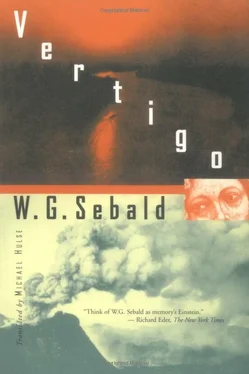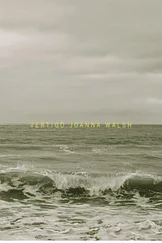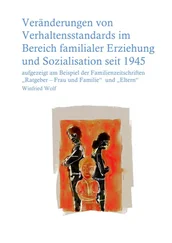Winfried Sebald - Vertigo
Здесь есть возможность читать онлайн «Winfried Sebald - Vertigo» весь текст электронной книги совершенно бесплатно (целиком полную версию без сокращений). В некоторых случаях можно слушать аудио, скачать через торрент в формате fb2 и присутствует краткое содержание. Год выпуска: 2001, ISBN: 2001, Издательство: New Directions, Жанр: Современная проза, на английском языке. Описание произведения, (предисловие) а так же отзывы посетителей доступны на портале библиотеки ЛибКат.
- Название:Vertigo
- Автор:
- Издательство:New Directions
- Жанр:
- Год:2001
- ISBN:978-0811214858
- Рейтинг книги:4 / 5. Голосов: 1
-
Избранное:Добавить в избранное
- Отзывы:
-
Ваша оценка:
- 80
- 1
- 2
- 3
- 4
- 5
Vertigo: краткое содержание, описание и аннотация
Предлагаем к чтению аннотацию, описание, краткое содержание или предисловие (зависит от того, что написал сам автор книги «Vertigo»). Если вы не нашли необходимую информацию о книге — напишите в комментариях, мы постараемся отыскать её.
Vertigo
The Emigrants
The Rings of Saturn
The New York Times Book Review
The Emigrants
Vertigo — читать онлайн бесплатно полную книгу (весь текст) целиком
Ниже представлен текст книги, разбитый по страницам. Система сохранения места последней прочитанной страницы, позволяет с удобством читать онлайн бесплатно книгу «Vertigo», без необходимости каждый раз заново искать на чём Вы остановились. Поставьте закладку, и сможете в любой момент перейти на страницу, на которой закончили чтение.
Интервал:
Закладка:
At this point Dr K. surely came within an inch of admitting to a desire which we must assume remained unstilled. But instead, remarking that it is already late, he hastily concludes his letter, one which he had begun with comments on a photograph of a niece of Felice's, writing: Yes, this little child deserves to be loved. That fearful gaze, as if all the terrors of the earth had been revealed to her in the studio. But what love could have been sufficient to spare the child the terrors of love, which for Dr K. stood foremost among all the terrors of the earth? And how are we to fend off the fate of being unable to depart this life, lying before the podestà, confined to a bed in our sickness, and, as Gracchus the huntsman does, touching, in a moment of distraction, the knee of the man who was to have been our salvation.
IV Il ritorno in patria
In November 1987, after spending the last weeks of the summer in Verona, working on my various tasks, and the month of October, because I could not bear to wait any longer for the onset of winter, in a hotel high above Bruneck, near the tree line, I decided one afternoon, when the Großvenediger emerged from behind a grey snow cloud in an especially ominous way, that I should return to England, but before that go to W. for a while, where I had not been since my childhood. As there was only one bus a day from Innsbruck to Schattwald, and that, as far as I could discover, at seven in the morning, I had no alternative but to take the night express across the Brenner, a train with unpleasant associations for me, which arrives in Innsbruck at about half past four. At Innsbruck, as always when I arrive there, no matter what the time of year, the weather was quite atrocious. It cannot have been more than five or six degrees above zero, and the clouds were hanging so low that the tops of the houses disappeared in them and the dawn could not break through. Moreover, it rained incessantly. So there was no question of walking into town or taking a stroll along the river Inn. I looked out across the deserted station forecourt. Now and then some vehicle would crawl slowly along the gleaming black roads, the last of an amphibian species close to extinction, retreating now to the deeper waters. The ticket hall was also deserted, apart from a small chap with a goitre wearing a green loden cape. Holding his folded, dripping umbrella against his shoulder with its tip upwards like a rifle, he was walking back and forth with measured tread and making such precise about-turns that he might have been guarding the Tomb of the Unknown Soldier. The down-and-outs then appeared, one after the other, though from where was uncertain, till there were a dozen of them, a lively group gathered around a crate of Gòsser beer which had made a sudden miraculous appearance in their midst, seemingly out of thin air. United by the inveterate alcoholism of the Tyrol which is known for its extremism far beyond the region, these Innsbruck dossers, some of whom appeared to have only recently dropped our of ordered life, while others were already in a completely ruinous state, and every single one of whom had something of the philosopher or even of the preacher about him, were holding forth on current events as well as the most fundamental questions. It was remarkable in their disputations that those who chimed in at the top of their voices were invariably the ones who left off in mid-sentence, suddenly silenced as if by a stroke. Whatever happened to be the topic, every point was underscored by highly theatrical, apodictic gestures, and even when one of their number, no longer able to put into words the thought which had just come into his head, turned away with a wave of contempt, it seemed to me as if their manner derived from a distinctive dramatic repertoire completely unknown on the stage. Possibly this was because all of them were holding their beer bottles in their right hands, and were thus in a sense acting out one-armed, left-handed roles. And perhaps, I concluded from this observation, it might be a good ploy to tie the right hands of all drama students behind their backs for a year at the start of their training. With reflections such as these I passed the time until increasing numbers of commuters began traversing the hall, and the dossers made themselves scarce. At six o'clock on the dot, the so-called Tiroler Stuben opened, and I took a seat in a restaurant which for sheer dreariness far surpassed every other station bar I had ever been in, ordered a coffee and leafed through the Tiroler Nachrichten. Neither of these, the Tyrolean morning coffee nor the Tiroler Nachrichten, did anything to improve my state of mind. It therefore did not surprise me in the slightest when things took an even worse turn, and the waitress, to whom I had made a joking remark about the corrosive properties of the Tyrolean chicory coffee, gave me the benefit of her sharp tongue in the most ill-tempered manner imaginable.
Frozen through and bleary-eyed from lack of sleep as I was, the insolence of this Innsbruck waitress like a noxious poison went right under my skin. The words in the newspaper jittered and swam before my eyes, and more than once I felt as though my insides had seized up. Not until the bus was leaving town did I gradually begin to feel somewhat better. It was still pouring with rain, so heavily that the houses close to the road could hardly be made out, and the mountains not at all. Now and then the bus stopped so that one of the old women standing at intervals along the roadside beneath their black umbrellas could get on. Soon quite a number of these Tyrolean women were aboard. In the dialect I was familiar with from childhood, croakily articulated at the back of the throat like some bird language, they talked mainly or indeed exclusively about the never-ending rain, which in many places had already caused whole mountainsides to slide into the valleys. They spoke of the hay rotting in the fields and the potatoes rotting in the ground; of the redcurrants which had come to nothing for a third year in a row; of the elder, which this year had not flowered until the beginning of August and had then been completely ruined by the rain; and of the fact that not a single eatable apple had been picked far and wide. As they went on discussing the effects of the ever-worsening weather, complaining that there was neither sunlight nor warmth, the scene outside brightened up, a little at first and then more and more. One could now see the river Inn, its waters meandering through broad stony reaches, and soon beautiful green meadows came into view. The sun came out, the entire landscape was radiant, and the Tyrolean women fell silent one after the other and simply looked out at the miracle passing by. I felt much the same myself. The countryside seemed freshly varnished — we were now driving out of the Inn valley in the direction of the Fern Pass — and the steaming forests and blue skies above, though I had come up from the south and had had to endure the Tyrolean darkness for only a couple of hours, were like a revelation even to me. Once I noticed a dozen hens right out in the middle of a green field. For some reason that I still cannot fathom, the sight of this small flock that had ventured so far out into the open affected me deeply. I do not know what it is about certain things or creatures that sometimes moves me like this. The road climbed steadily upwards. The flame-red stands of larch trees were blazing on the sides of the mountains, and I saw that snow had fallen a long way down. We crossed the Fern Pass. I marvelled at the screes which reached from the mountains down into the forests like pale fingers into dark hair, and I was astonished again at the mysterious slow motion quality of the water-falls which, for as long as I could remember, had been cascading, unchanged, over the rock faces. At a hatpin bend I looked out of the turning bus down into the depths below and could see the turquoise surfaces of the Fernstein and Samaranger lakes, which, even when I was a child, on our first excursions into the Tyrol, had seemed to me the essence of all conceivable beauty.
Читать дальшеИнтервал:
Закладка:
Похожие книги на «Vertigo»
Представляем Вашему вниманию похожие книги на «Vertigo» списком для выбора. Мы отобрали схожую по названию и смыслу литературу в надежде предоставить читателям больше вариантов отыскать новые, интересные, ещё непрочитанные произведения.
Обсуждение, отзывы о книге «Vertigo» и просто собственные мнения читателей. Оставьте ваши комментарии, напишите, что Вы думаете о произведении, его смысле или главных героях. Укажите что конкретно понравилось, а что нет, и почему Вы так считаете.












